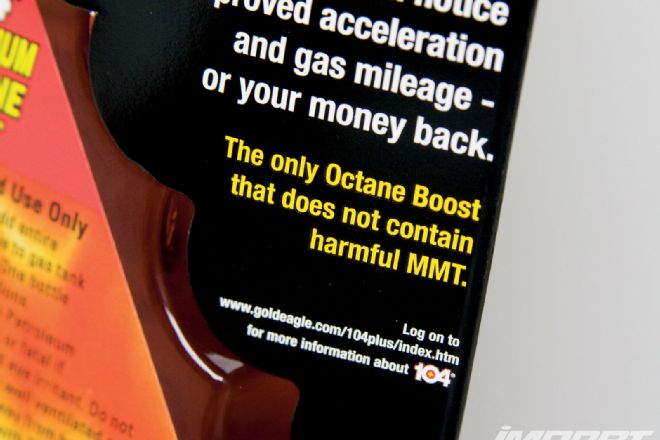They're everywhere. On the shelves of consumer auto parts stores, on the e-pages of online performance catalogs and occasionally plastered across the flanks of winning competition cars. On their bottles are claims of increased power, better fuel mileage and cleaner engines with use, and inside are proprietary formulas and chemicals with names we can't even begin to decipher. They are the world's "performance fuel additives", and we have yet to test one that makes good on all its claims.
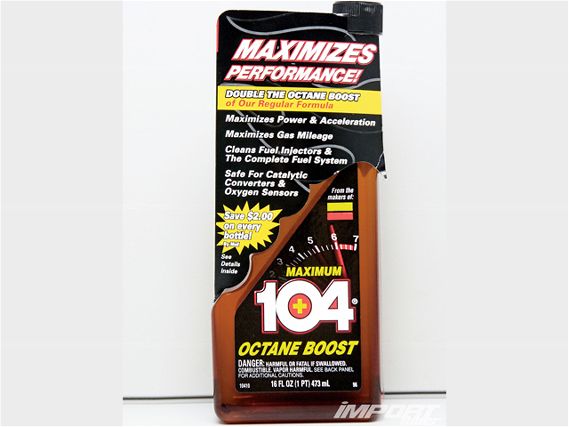 |
Performance Fuel Additives - Fact Or Fiction
|
Performance Fuel Additives - Fact Or Fiction
Have we finally found a fuel treatment that increases power?
In lieu of tetra-ethyl lead added to gasoline in pre-catalytic-converter days, a wide variety of chemicals are added to modern-day automotive gasoline to stabilize and elevate its octane level on the cheap, decrease the propensity for pre-ignition, and allow for more power to be made from increased compression and/or advanced ignition timing. In the world of aftermarket performance fuel additives and octane boosters, three ingredients are used predominantly: methylcyclopentadienyl manganese tricarbonyl (MMT), toluene, and variants of trimethylbenzene. Avoiding the whole father-son organometallic chemistry talk, let's just say that each does the job in its own way, with its own set of characteristics. Our testing of an octane booster with MMT (Fact or Fiction, Feb., '09) produced no measurable power increases-the same results we experienced testing a different one that bragged of adding "up to 25 horsepower instantly", without listing its ingredients (toluene, we suspect-Fact or Fiction, May, '08). This month, we test the venerable 104+ Maximum Octane Boost.
Like our mystery fuel treatment in the May, '08 issue, the makers of 104+ don't list its ingredients on the bottle, nor on any readily accessible part of their official website. But company literature does state that it contains no MMT or alcohol, yet delivers "double the octane boost" of its regular-formula product-one for which published MSDS data sheets list a 5-percent solution of well-known octane booster 1,2,4 trimethylbenzene (with two percent naphthalene, in a solution of 30-percent petroleum distillate and 60-percent "proprietary additive") 1. Assuming a 10-percent solution of 1, 2, 4 trimethylbenzene at a 136 AKI octane rating (anti-knock index-the same system used to rate US pump gas) 2 as our test subject's only significant octane-enhancing ingredient, adding the 16-ounce bottle of 104+ Maximum Octane Boost to 20 gallons of 91-octane fuel in our Project DC2 (per manufacturer's directions) will elevate octane levels to only 91.03 octane, give or take.
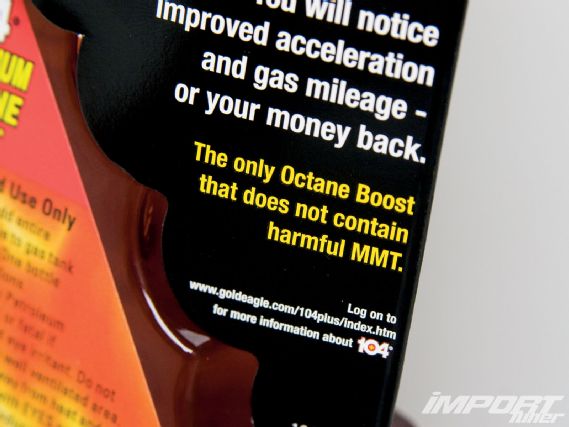 |
Performance Fuel Additives - Fact Or Fiction
|
Performance Fuel Additives - Fact Or Fiction
Published third-party information about 104+ Octane Boost claims a "five-point" octane increase 3, which, in marketing terms, translates to a 0.5 jump in the AKI octane rating 4. Figuring a 10-point increase for 104+ Maximum, this would bring the octane rating of our test fuel to around 92-far less than 104.
To test the product's effects on power and torque output, we strapped Project DC2 down to the Dynojet rollers of Westminster, CA dyno-rental specialists MD Automotive, and performed a set of five Fourth Gear pulls, first with straight 91-octane pump gas powering the car, then another set of five after the addition of 104+ Maximum Octane Boost.
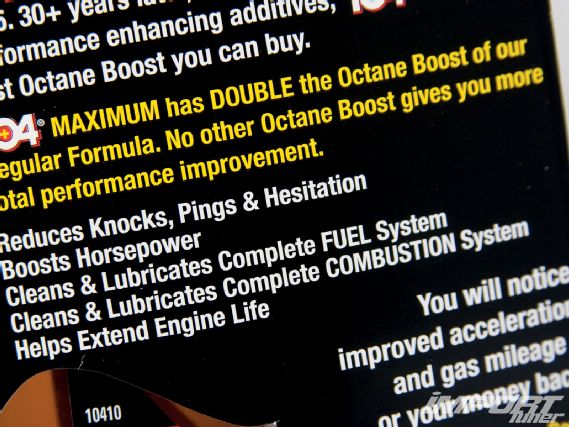 |
Performance Fuel Additives - Fact Or Fiction
|
Performance Fuel Additives - Fact Or Fiction
Averaging the numbers, our DC2 experienced negligible changes to power and torque output throughout testing, while ambient temperatures steadily fell about two degrees.
THE VERDICT:
FICTION
Don't let our testing discredit the product entirely-octane levels weren't measured, and changes to ignition timing in our subject car weren't made to determine if it did stave off knock, as advertised. Fuel system cleaning and increased mileage claims weren't tested, either. All considered, let this show what to expect from adding an over-the-counter fuel treatment to a similar car in good tune. If you need higher-octane fuel, buying it directly from a gas station or race shop is a better bet.
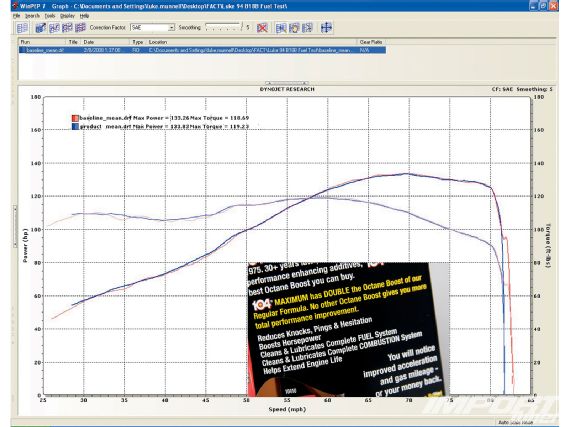 |
Performance Fuel Additives - Fact Or Fiction
|
Performance Fuel Additives - Fact Or Fiction
Sources
1 MSDS information prepared by Mike Profetto, courtesy of Ignitable Liquids Reference Collection, University of Central Florida
http://ilrc.ucf.edu/documents/ILRC%2000000208/MSDS%2000000208.pdf
2 Myers, Richard L. (2007). The 100 Most Important Chemical Compounds: A Reference Guide. Westport, CT: Greenwood Press
http://wiki.answers.com/Q/How_many_additives_in_gasoline
3 www.octane-booster.com
http://www.octane-booster.com/octane-104-street-formula-16-oz/
4 Car Care FAQ: Prestone
http://www.prestone.com/carcare/faq.php#q7

